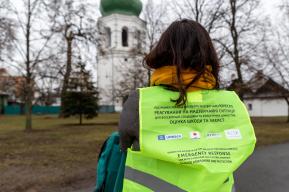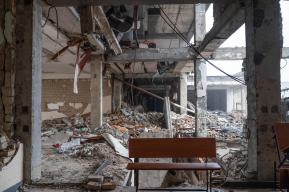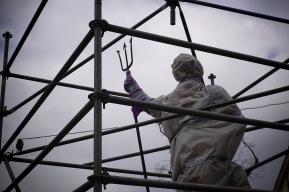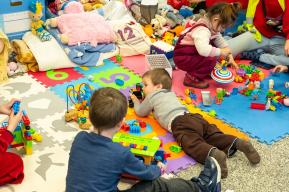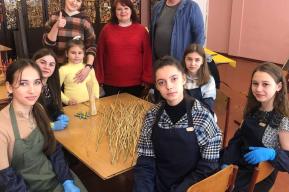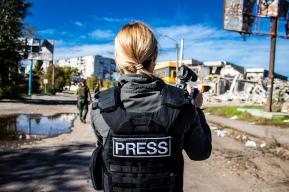Article
UNESCO mission to Ukraine assesses impact of war on culture sector
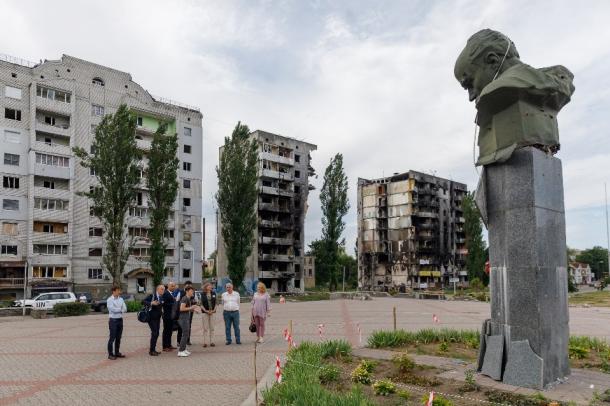
From 6 to 11 July 2022, a UNESCO mission went to Ukraine to consolidate an initial assessment of the impact of the war on Ukraine’s culture sector, coordinate the Organization’s support in this field with the government authorities and partners, and define priorities for recovery and reconstruction.
While in Kyiv and Lviv, UNESCO experts had meetings with Ukraine’s Ministry of Culture and Information Policy as well as cultural institutions, and visited cultural sites and institutions that have been damaged such as the House of Culture and the bust of Ukrainian writer Taras Shevchenko in Borodyanka.
The mission was also shown different protection measures undertaken by Ukrainian cultural institutions in Kyiv and Lviv, based on advice provided by UNESCO, such as at the monastic complex of Kyiv-Pechersk Lavra, a site inscribed on the World Heritage List in 1990.
The protection of cultural property is a priority
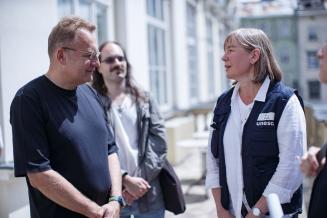
It was agreed that UNESCO would ramp up its support to the recovery of Ukraine in the areas of its mandate, in line with the Draft United Nations Transitional Framework for Ukraine including through a comprehensive technical assistance and capacity-building programme. This includes increasing its support to artists and other culture professionals that have been deprived of their livelihoods – two initiatives have already been launched for this purpose in mid-June.
UNESCO also cooperates with Ukraine in the further documentation and assessment of damages, and in coordination of reconstruction and recovery efforts. The war has inflicted immense damage upon the cultural heritage of Ukraine: to date, UNESCO has confirmed damage to over 164 cultural sites (72 religious sites, 12 museums, 32 historic buildings, 24 buildings dedicated to cultural activities, 17 monuments, 7 libraries).
Based on this mission of UNESCO, it appears that concrete, timely and well-structured assistance to Ukrainian institutions remain indispensable to ensure that culture, heritage and creative cultural expressions will have their full place in future reconstruction and will be used as sources of economic resilience, social healing and recovery.


